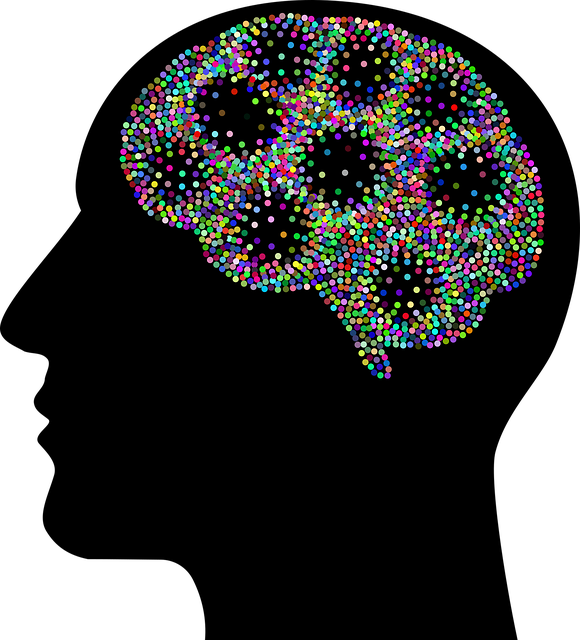In moments of intense distress, effective therapy for adults with anger management issues can significantly impact mental wellness. Crisis intervention strategies provide immediate support, using journaling exercises and mindfulness techniques to process emotions and prevent further crises. Therapists should identify underlying triggers like past traumas and current stressors, conducting risk assessments for personalized interventions. De-escalation techniques and compassion cultivation empower clients to manage anger, while stress management workshops build long-term resilience. Post-crisis care includes cognitive-behavioural therapy (CBT) and burnout prevention programs for healthcare providers, ensuring a robust crisis response system.
“In moments of crisis, effective intervention can be a lifeline. This article explores essential strategies for guiding individuals through traumatic or stressful situations, with a focus on anger management in adults. We delve into recognizing triggers, de-escalation techniques, and building support systems—all vital skills in therapy for adults. By understanding these crisis intervention methods, professionals and caregivers can foster resilience and prevent future crises. Learn how to navigate these challenging scenarios with care and expertise.”
- Understanding Crisis Intervention: When and Why It's Crucial
- Assessing the Individual: Recognizing Underlying Triggers
- Direct Approaches: De-escalation Techniques for Anger Management
- Indirect Strategies: Building Support Systems and Coping Skills
- Post-Crisis Care: Fostering Resilience and Preventive Measures
Understanding Crisis Intervention: When and Why It's Crucial

In moments of intense distress or crisis, effective intervention can make a significant difference in an individual’s life. Crisis intervention strategies are tailored to provide immediate support and help individuals cope with challenging situations, often preventing further deterioration of mental health. This is particularly crucial when dealing with adults experiencing anger management issues, as unprocessed rage can lead to harmful behaviors and relationships.
The role of therapy for adults goes beyond treating existing conditions; it includes proactive measures like risk management planning for mental health professionals, who are trained to recognize warning signs and implement guidance tailored to each client’s unique needs. Incorporating practices such as mental wellness journaling exercise and mindfulness techniques can be a powerful tool in crisis intervention, offering individuals a means to process emotions, gain perspective, and prevent the onset of depression or other mental health crises.
Assessing the Individual: Recognizing Underlying Triggers

When assessing an individual during a crisis intervention, one of the most crucial steps is to recognize and understand the underlying triggers that may have contributed to the situation. This process involves delving into their past experiences, current stressors, and emotional states. For adults struggling with anger management issues, it’s essential to assess if there are any unaddressed traumas, recent life changes, or ongoing conflicts that might be fueling their anger. Therapy for Adults often utilizes a comprehensive approach, including self-care practices and mental wellness journaling exercises, to help individuals gain insight into their emotions and behaviors.
Mental health professionals should employ a thorough risk assessment to gauge the severity of the situation and the individual’s potential for harm to themselves or others. By recognizing these triggers, therapists can tailor their interventions, offering guidance that addresses not only the immediate crisis but also long-term mental wellness. This personalized approach ensures individuals receive effective support tailored to their unique needs.
Direct Approaches: De-escalation Techniques for Anger Management

Direct Approaches: De-escalation Techniques for Anger Management
In the realm of crisis intervention, one of the most immediate and impactful strategies is de-escalation. This technique, often employed by mental health professionals, focuses on diffusing intense emotions, particularly anger, to create a more manageable situation. By utilizing de-escalation techniques, therapists facilitate a safe space for individuals struggling with anger management issues, enabling them to process and control their feelings effectively. Through active listening, empathetic responses, and calm demeanor, therapists help clients recognize and validate their emotions while guiding them towards healthier coping mechanisms.
In therapy for adults with anger management challenges, compassion cultivation practices and emotional intelligence play a significant role in the de-escalation process. Therapists encourage clients to explore underlying causes of anger, fostering emotional healing processes that go beyond mere symptom relief. By cultivating empathy and understanding, both within themselves and towards others, individuals can develop better self-regulation skills and improve their interpersonal interactions. These compassion cultivation practices, combined with enhanced emotional intelligence, empower adults to navigate challenging situations with increased resilience and reduced reliance on aggressive outlets.
Indirect Strategies: Building Support Systems and Coping Skills

In addressing crises, indirect strategies play a pivotal role in fostering resilience and long-term well-being. Beyond immediate intervention, building support systems and equipping individuals with coping skills is essential. These strategies extend beyond therapy for adults, encompassing various techniques to enhance emotional regulation. For instance, compassion cultivation practices have proven effective in reducing reactivity to stressful situations, thereby mitigating potential triggers for anger management issues.
By integrating these indirect approaches, such as Burnout Prevention Strategies for Healthcare Providers and Stress Management Workshops Organization, individuals gain a robust toolkit for navigating crises. This proactive approach not only helps in overcoming immediate challenges but also equips people with the resources to build and maintain healthy support networks, thereby fostering resilience and overall mental well-being.
Post-Crisis Care: Fostering Resilience and Preventive Measures

Post-crisis care plays a pivotal role in fostering resilience and preventing future incidents. Once the immediate crisis has passed, individuals often experience a range of emotions, from grief and anger to guilt and fear. Providing supportive therapy for adults that focuses on emotional healing processes can help them navigate these feelings and regain a sense of control. This includes techniques such as cognitive-behavioural therapy (CBT) to manage intense emotions, like anger, and promote healthy coping mechanisms.
Moreover, burnout prevention strategies for healthcare providers are essential in this phase. The high-stress nature of crisis intervention can lead to professional burnout if not adequately addressed. Implementing emotional regulation techniques and peer support networks among healthcare workers can mitigate these risks. By prioritizing their own emotional well-being, professionals become better equipped to support others through future crises, fostering a more sustainable and effective response system.
In navigating life’s crises, crisis intervention strategies offer a vital safety net. By understanding the nuances of anger management through de-escalation techniques, building supportive networks, and fostering resilience, individuals can overcome challenging situations. These evidence-based practices, including therapy for adults with anger issues, empower people to develop effective coping skills, prevent future crises, and promote overall well-being. Embracing these strategies ensures a more positive and constructive approach to crisis care.











